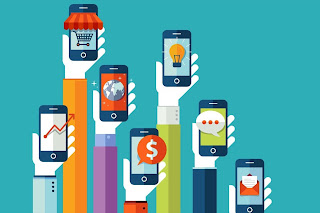Search This Blog
"TechBytes" is the place to go for everything tech related! Welcome! Explore the world of innovative devices, ground-breaking software, and the most recent developments in the technology sector. Passionate tech enthusiasts who are driven by innovation curate our blog.
Featured
- Get link
- X
- Other Apps
Which Android applications are the greatest for smartphones and are practical for everyday use?
The greatest Android applications for everyday use vary depending on personal requirements and tastes, however the following are some popular choices from a variety of categories:
1) Productivity:
➤ Google Drive: For document collaboration and cloud storage.
➤ Microsoft Office Suite: To create and modify spreadsheets, presentations, and documents while on the go.
➤ Todoist or Any.do: For to-do lists and task management.
➤ Trello: For employing boards and cards to arrange assignments and projects.
2) Communication:
➤ WhatsApp or Signal: For messaging and calling.
➤ Gmail: For handling emails.
➤ Zoom or Google Meet: For meetings and video conferencing.
3) Health and Fitness:
➤ MyFitnessPal: For monitoring physical activity and diet.
➤ Calm or Headspace: For awareness and meditation.
➤ Strava or Nike Run Club: To keep track of exercises and runs.
4) Finance:
➤ Mint or YNAB (You Need A Budget): To track expenses and create a budget.
➤ PayPal or Venmo: To transfer and receive money.
➤ Robinhood or Coinbase: For cryptocurrency and investment management.
5) Entertainment:
➤ Netflix or Amazon Prime Video: For TV series and movies that stream.
➤ Spotify or Apple Music: For music that is streamed.
➤ Audible or Kindle: For reading electronic books or listening to audiobooks.
6) Utilities:
➤ Google Maps: For traffic updates and navigation.
➤ Weather Underground or AccuWeather: To obtain precise weather predictions.
➤ LastPass or Bitwarden: For safely organizing passwords.
➤ CamScanner: To scan papers with the camera on your phone.
7) Education:
➤ Duolingo or Memrise: For the purpose of learning languages.
➤ Khan Academy or Coursera: For tutorials and online courses.
➤ Quizlet: For using flashcards to learn and memorize information.
8) Shopping:
➤ Amazon or eBay: In order to shop online.
➤ Walmart or Target: For discounts and help with in-store purchasing.
9) Travel:
➤ TripAdvisor or Yelp: To locate lodging, dining options, and tourist destinations.
➤ Airbnb or Booking.com: For making hotel reservations.
➤ Google Trips or TripIt: For planning and arranging travel schedules and arrangements.
10) Social Media:
➤ Facebook or Instagram: For sharing images and videos on social media.
➤ Twitter or Reddit: For debates and news in real time.
These are but a handful of the numerous applications that are offered on the Google Play Store to suit a variety of purposes and preferences.
- Get link
- X
- Other Apps
Popular Posts
Main differences between Windows 10 And Windows 11
- Get link
- X
- Other Apps


Comments
Post a Comment